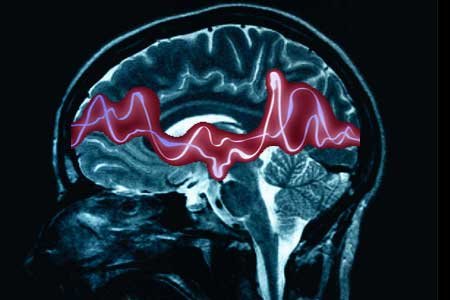Epilepsy
Epilepsy is a result of excessive electrical activity in some part of the brain. The symptoms of epilepsy vary depending on the part of the brain affected. Some people with epilepsy have have full-fledged convulsions with loss of consciousness and jerking of the bdy and limbs; others may have transient behavioural change; some may simply stare blankly for a few seconds during a “seizure”. All forms of epilepsy require treatment, because they can cause grievous bodily harm if thy occur during activities like driving or swimming.
Read Dr. Gautham’s article on Epilepsy made simple
Causes
The condition may be traced to various factors.
- Injury to the fetus. Brain damage to the fetus caused by an infection in the mother, poor nutrition or oxygen deficiencies can result in epilepsy in the child.
- Developmental disorders. Epilepsy can be associated with developmental disorders, such as mental retardation, cerebral palsy, autism and Down’s syndrome.
- Genetic influence. Epilepsy can run in families, or the genetic influence may make a person more susceptible to environmental conditions that trigger seizures.
- Head injury of any kind can cause epilepsy.
- Infections like meningitis, AIDS and viral encephalitis can cause epilepsy.
- Cerebra-Vascular disorders. Damage to brain cells due to reduced blood supply can cause epilepsy with or without a stroke.
- Dementia can cause of epilepsy among older adults.
Complications:
A fall during a seizure, can cause head injury or break a bone. An epileptic seizure while swimming, can cause drowning. A seizure while driving can cause loss of control and result in a serious accident. Seizures during pregnancy pose dangers to both mother and baby.
Treatment
A single anti-epileptic drug can make a person seizure-free. However, the medication has to be continued, sometimes indefinitely. In others, medication can decrease the frequency and intensity of seizures. Sometimes the seizure continue to occur in partially with just a transient behavior change. This may be because of inadequate treatment, inappropriate medication, or an irritant focus in the brain.

Symptoms:
Symptoms vary depending on the type of seizure.
Tonic-clonic seizures (also called grand mal).
These are the most common and most intense of all types of seizures. The person loses consciousness, falls, and has stiffening and jerking of the body, and loss of bladder control.
Simple partial seizures.
There is no loss of consciousness. There may be a transient involuntary alteration of emotions (sudden crying or laughing) or a change the way things look, smell, feel, taste or sound. There may be just a jerking of one part of the body, such as an arm or leg. Or there may be spontaneous sensory symptoms such as tingling, vertigo or flashing lights. The person remains fully conscious during the seizure but has no control over what is happening. The symptoms usually last for a few seconds.
Complex partial seizures.
There is a transient alteration of consciousness, with loss of awareness for a period of time during which the person carries out bizarre behaviour or nonpurposeful movements — such as hand rubbing, twitching, chewing, swallowing or walking in circles or behaves abnormally. The persons are not aware of what they are doing.
Absence seizures.
There is a fleeting period of loss of awareness with staring and subtle body movement such as nodding, blinking, or licking the lips. The person experiences a “loss of time”.
Myoclonic seizures.
There is a sudden jerks or twitch of the arms and legs which may result in a fall, with the person getting up immediately, and not being aware of the cause of the fall.
Atonic seizures.
There is a sudden lose of normal muscle tone with a sudden collapse called a “drop attack”.
